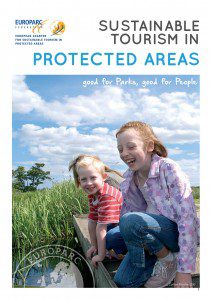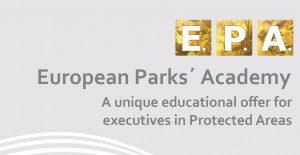Call for new Verifiers – European Charter for Sustainable Tourism
Hoge Kempen Regional Landscape, Belgium
The European Charter for Sustainable Tourism in Protected Areas (ECSTPA) is a practical management tool that enables Protected Areas to develop tourism sustainably, bringing environmental, social and economic benefits to the region.
The ECSTPA has been implemented over the past decades in several European countries and a wide range of expertise and experience has been built up. Up to now, 144 protected areas have been certified as Charter areas and this number is likely to increase over the years. Central to the ECSTPA is its evaluation process, and with the use of the ECSTPA becoming so widespread it is very important that the evaluation process maintains its high standards and credibility.
To learn more about the European Charter for Sustainable Tourism in Protected Areas read the brochure “Good for Parks, Good for People”.
Charter Verifiers
At the heart of the evaluation process are the verifiers – a European network of experts and experienced professionals. The last verifiers training was held in 2011, and in order to ensure that standards are maintained and improved it is proposed to train new verifiers, especially for those countries where the interest in the Charter is growing and to anticipate new developments in Charter parks across Europe.
As a member’s organisation we want not only to support the work of your park or organisation, but to offer opportunities not just to develop your skills and experience, but also to share that experience with others.
The opportunity to train as a verifier of the ECTSPA, will give you a chance to join a network of international professionals in the field of sustainable tourism and protected areas. The benefits of being a verifier include the opportunity to visit various European Protected Areas, by learning and assessing their various work produced, gain knowledge and understanding of the operational context of a protected area and how this has engaged with its stakeholders, the possibility to meet with various professionals and local experts, and assess the work done at the local level.
Become a Charter Verifier: What is needed
- In order to become a verifier you will need to show a proven expertise in the field of protected areas, sustainable tourism and participatory planning/community engagement.
- Verifiers will have to adhere to the code of conduct of the Federation and act as their ambassador and representative during their given assignments.
- Verifiers will have to ensure high quality and timely delivery of the verification reports in English.
- It is therefore required an excellent command of English (europass C2 writing) so to submit a clear, smoothly-flowing description or argument in a style appropriate to the context and with an effective logical structure which helps the Evaluation Committee to notice and remember significant points.
- It is also required a proven previous knowledge of the operative context of protected areas, experience in the field of sustainable tourism.
- Please note that availability on training dates is mandatory!
If you are interested and if you think you can fulfil the criteria, then apply to become a Verifier.
What to do
To apply to become a verifier please send your CV (in English) along with the completed form below by Friday, 1st July (23:59) so that we can start the selection procedure. We will confirm if you have been selected in early August. Training it will take place in Siggen in Northern Germany from 14th to 17th November 2016. It is mandatory to attend. We will send out a draft programme. Travel costs up to €350 will be reimbursed. Room and board are included.
The training will involve sessions looking at both programmes in relation to the EUROPARC strategy and sessions looking at how to verify a charter area. Communications skills and an in-depth look at the application forms and procedures is also included.
People who take part in the seminar will be expected to use their training exclusively for the Federation and to be available as verifiers for the Federation once or twice a year as a charter verifier.
Download the form below and send it back to info @ european-charter.org, along with a motivation letter explaining why you want to become a charter verifier.
Meeting with the DG Environment
Natura 2000 Logo
EUROPARC working for a better recognition of the role of Parks in Europe
Parks, with their long history, integrated governance systems, wide expertise, passion and dedication are fundamental to ensure the effective management of Natura 2000 sites. EUROPARC Federation has been working in Brussels to enhance the recognition of Parks among the EU Institutions, and highlight their fundamental role for safeguarding Europe’s habitats and biodiversity. Indeed, conservation objectives will be hardly achieved without proper management and the involvement of stakeholders.
Yesterday, Federico Minozzi, EUROPARC Managing Director along with Giampiero Sammuri, President of Federparchi-EUROPARC Italy, and Enzo Lavarra, President of the Dune Costiere Regional park and former MEP, had a productive meeting in Brussels with the DG Environment – Cabinet of the EC Commissioner Vella. EUROPARC and Federparchi-EUROPARC Italy will work to collect some evidence and case studies and introduce the European Commission concrete results from our member network, on the management of Natura 2000.
For more information about our policy work check our section “European Policy”.
Job Vacancy – Communications and IT Officer
Person connecting and sharing using social media networks - With speech bubbles featuring Facebook, Google Plus, Instagram, Pinterest, Linkedin, Skype, Tumblr, Twitter and Youtube
EUROPARC is looking for a Communications Officer with a strong IT background, an interest in nature and a passion for parks. The Communications Officer will have opportunity to contribute directly to the work of a wide European environmental organisation, working along with an international team, so needs an understanding and willingness to work in a NGO culture.
The Communications officer will support in delivering the general aims of EUROPARC communications strategy and contribute to the implementation of other communication tasks, mainly regarding digital communications. He/she will also assist in communication for project development and implementation.
Candidates should have experience in:
- management of databases
- creation and management of websites
- management and monitoring online campaigns
- website analytics
- developing online content – written, animation or video form
- knowledge of video and image edition software is an advantage
We are looking for an innovative and creative thinker who is adaptable and responsive to change. Proficient written skills in English are essential and other European languages an advantage.
For the complete description and conditions download the document below.
- Applications should be submitted before the 10th June to the email office@europarc.org, with the subject “Application – Communications and IT Officer”
- Interviews will be held via gotomeeting during the days 21th – 22th June
Training opportunities for Protected Areas’ staff
Capacity building is at the core of our work in the Federation. EUROPARC members can benefit from several opportunities developed by the Directorate and the Federation sections: join an annual training seminar organised in Siggen, participate in the several workshops organised during our Annual Conference, or even benefit from the numerous tools we provide to our members, like the Communications Toolkit, specially designed to improve communication skills of Natura 2000 managers.
Despite the opportunities within the Federation and EUROPARC sections, there are some interesting opportunities for improving your skills in different fields. EUROPARC Federation curated for you 5 interesting trainings, from governance of protected areas, to management tools, geospatial software and certified training for guides. And there is even a discount for EUROPARC members in a special training in Spain!
The European Parks Academy
Klagenfurt, Austria, 11-16 July 2016
This summer, protected areas professionals will have a unique chance to develop their skills and learn about the emerging trends, new approaches and technologies in protected areas.
The European Parks’ Academy (EPA) is a summer school with seminars, which will take place in July, in Klagenfurt, Austria. The programme has been elaborated in collaboration with IUCN WCPA, together with partners in Austria and with support of the Austrian Ministry of Environment. The first two modules will be on “Governance of protected areas” and “Financial management of protected areas”.
The seminars of EPA focus on new international and European standards, policies and guidelines and their implementation in protected areas, such as policies of IUCN, Ramsar Convention on Wetlands, UNESCO or Convention on Biodiversity.
Registration is open now as well as the application for scholarships!
More information is available here and in the flyer. For any questions, contact Michael Huber (epa_at_e-c-o.at)
II International Course on Protected Area Management
Sierra de Guadarrama National Park, Spain, 1-9 August
The II International Course on Protected Area Management (held in English) is an intensive training course that analyses the specific problems of protected areas close to urban centers. The course is offered by the Polytechnic University of Madrid in collaboration with the Directorate General for Environment of the Madrid Government and EDNYA, a company that manages different services in the Sierra de Guadarrama National Park. The programme will strengthen the skills of participants with regard to planning and managing areas that are open for public use and outdoor recreation programmes in protected areas in order to build support for conservation, contribute to public welfare and provide economic benefits to local
Members of the EUROPARC Federation benefit from a 20% discount in their registration!
For more information and registrations visit EDNYA website, or download the flyer and full description of the course.
International Guides and Guide Trainers Course
Brno, Czech Republic, 12-20 August 2016
Interpret Europe is launching a range of professional training courses to help guides from all over Europe improve the quality of their performance. This is also a highly valuable tool for heritage site and facility managers to meet their capacity building and professional development needs. The first summer courses take place in Brno (Czech Republic) and you can choose among Certified Interpretive Guides(CIG) and Certified Interpretive Guide Trainers (CIGT).
More information can be found here.
Geospatial technologies in ecosystem management
Évora, Portugal, 5-11 September 2016
“Geospatial technologies in ecosystem management — An introductory course to GIS, GPS and Remote Sensing”, is organised by Science Retreats LDA on behalf of the Évora branch of InBIO- CIBIO. This course offers an integrated overview of these three technologies and is designed for professionals of different backgrounds, which are faced with the possibility of using these technologies for their own needs, especially in the ecosystem management context. The course will be held in English and is balanced between theory and application. Participants are encouraged to bring spatial data related to their current work or interest.
More information can be found here or you can read the full description of the course.
Adaptive Management workshop – CMP Open Standards for the Practice of Conservation
Nature Park Medvednica, Croatia, 7-11 November 2016
The CMP Open Standards for the Practice of Conservation (Open Standards or OS) are a set of adaptive management standards to designing, managing, monitoring and learning from conservation projects. Created by the Conservation Measures Partnership (CMP), an international partnership of many of the world’s leading conservation organisations, the Open Standards are putting in place the building blocks to improve the practice of conservation. Its goal is to enable conservation organisations to tackle projects efficiently and achieve effective impacts.
More information can be found here.

